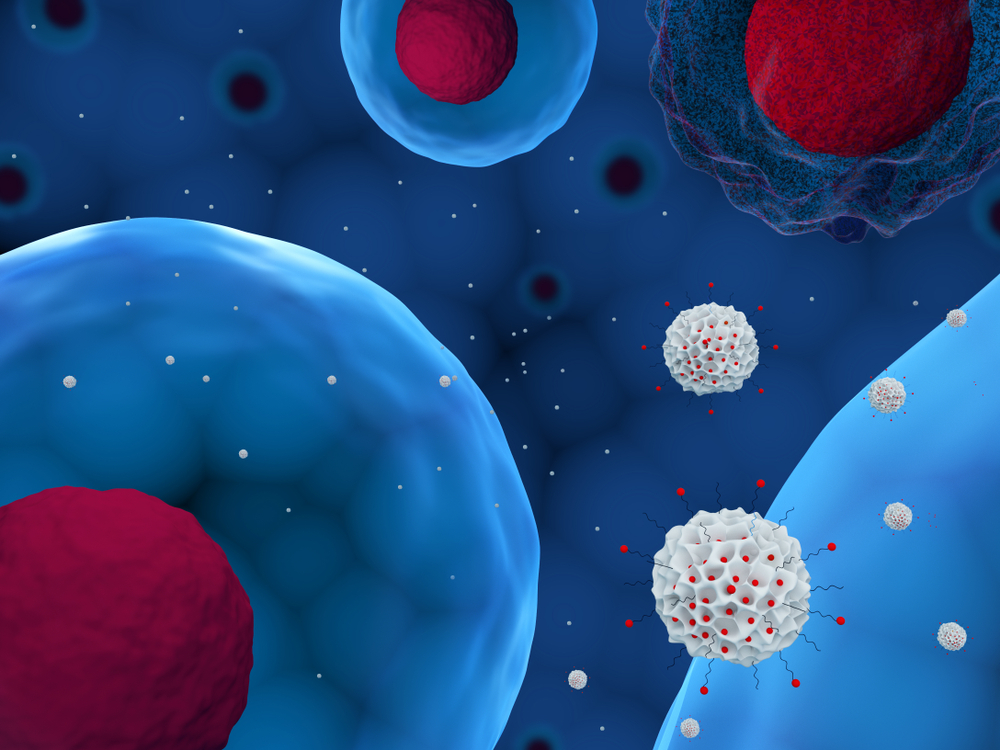C9orf72 Mutations Lead to Increased Immune Activity, Mouse Study Suggests
Written by |

Mutations in the gene C9orf72, a common genetic cause of amyotrophic lateral sclerosis (ALS), cause immune cells to have an abnormally potent inflammatory response when certain receptors are are activated, a new study suggests.
The findings could explain why people with ALS are more likely to develop some autoimmune diseases, but less likely to develop certain cancers.
The study, “C9orf72 in myeloid cells suppresses STING-induced inflammation,” was published in Nature.
Mutations in C9orf72 are the most common genetic cause of ALS, accounting for up to 40% of familial ALS cases and 7% of sporadic cases. Mutations in C9orf72 also are associated with a related condition called frontotemporal dementia (FTD). Some people with a C9ORF72 mutation develop ALS, some develop FTD, and others have symptoms of both conditions.
Disease-causing mutations in C9orf72 usually result in a lack of functional C9orf72 protein. This is believed to cause problems in the brain, which would explain how such mutations cause ALS and FTD. However, research also has indicated that C9orf72 mutations affect the immune system. This also may be indirectly involved in the development of ALS and FTD, and it could help explain why people with ALS are more likely to develop autoimmune diseases.
In the new study, researchers first examined immune cells in mice lacking a functional C9orf72 gene. Specifically, the researchers focused on myeloid cells — a group of immune cells that includes macrophages and dendritic cells, among others — because these cells normally express high amounts of C9orf72 protein.
In mice lacking C9orf72, myeloid cells showed signs of increased inflammatory activity. In particular, these cells showed signs of increased interferon signaling (a type of pro-inflammatory molecular signal).
Subsequent analysis revealed that the increased interferon signaling was the result of abnormal activity of the protein STING (STimulator of INterferon Genes). STING is one of many proteins that immune cells use to detect possible threats, such as viruses.
When the researchers treated C9orf72-deficient mouse myeloid cells with STING activators, the cells made more interferon than did myeloid cells with functional C9orf72. Stimulating other threat-detecting proteins (e.g., toll-like receptors) did not result in different amounts of interferon being produced.
Further molecular tests revealed the mechanism for this phenomenon. Normally, cells control STING signaling by degrading the STING protein in a controlled manner, thereby preventing too much of the protein from building up and sending aberrant pro-inflammatory signals. However, the lack of C9orf72 protein impaired cells’ ability to degrade STING, ultimately resulting in such signals.
In additional experiments, the researchers showed that their C9orf72-deficient mice were more susceptible to experimental autoimmune encephalomyelitis (EAE), a mouse autoimmune disease that is used to model the human autoimmune disease multiple sclerosis. In contrast, the mice were less susceptible to experimentally-implanted cancer.
Mice lacking one copy of C9orf72 (of the two total copies, one from each biological parent) were more susceptible to EAE than wild-type mice, but not as susceptible as mice that were fully C9orf72-deficient (C9orf72−/−). The reverse trend was seen for cancer.
Increased immune activity could explain not only the autoimmune findings, but also the cancer, since the immune system is able to kill cancer cells.
“In summary, these findings indicate that the altered immunophenotype that is observed in C9orf72−/− mice (or following loss of even one copy of C9orf72) leads to enhanced susceptibility to autoimmune disease and increased antitumour immunity,” the researchers concluded.
By analyzing both patient samples and available bioinformatics data, the researchers showed evidence for increased interferon signaling in tissue from people with ALS who had mutations in C9orf72, compared to either people without ALS or people with ALS who didn’t have such mutations.
“These findings support that patients with C9orf72 mutations have a fundamentally different set point of their immune system, with increased propensity to autoimmune diseases, and probably altered responses to viruses and other pathogens in the environment,” study co-author Robert Baloh, MD, PhD, director of the Cedars-Sinai Center for Neural Science and Medicine, said in a press release.
“These results give us critical insights into the interplay of the immune system and neurodegenerative disease,” added Nancy Sicotte, MD, chair of the Department of Neurology at Cedars-Sinai, who was not directly involved in the study. “They have implications not only for ALS and frontotemporal lobar degeneration, but for other autoimmune and degenerative disorders affecting the nervous system.”





